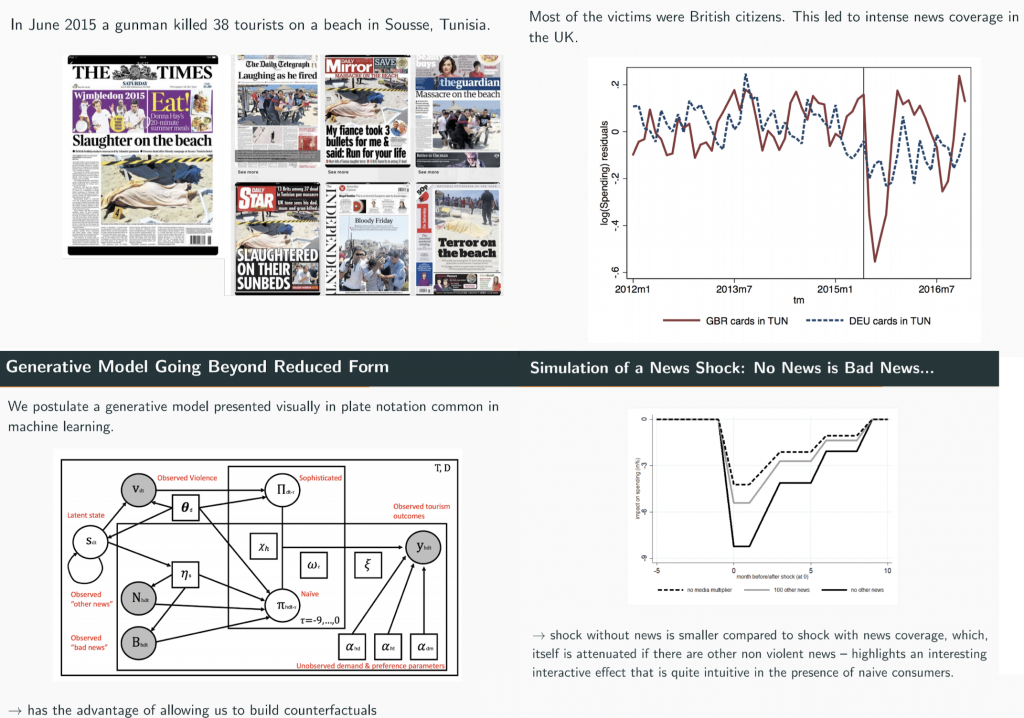Negative events, from crime to pandemics, often trigger responses influenced or amplified by media coverage. Our collaborative work sheds light on this. Delve into the empirical concept—the ‘media multiplier’—where media magnifies the economic impact of adverse shocks.

A Fresh Approach: Dyadic News Data
Traditional media multiplier assessment focused on news timing. Our new paper innovates by leveraging dyadic news data alongside economic activity data (service sector trade = tourism). Travelers from diverse origins visit countries like Turkey, Egypt, Tunisia, Israel, and Morocco, encountering diverse news portrayals. This lens offers key insights into media’s role in economic reactions.
Innovative Data Fusion
We construct a dyadic news data corpus revealing how countries report on each other’s events. Using supervised machine learning, our study measures media intensity surrounding specific newsworthy events—violent incidents. This uncovers the link between economic responses, like travel, and media coverage quality and quantity across origins.
Visualizing Economic Dynamics
Post a tragic incident in Tunisia, a spending visualization reveals a divergence. British travelers reduced spending more than Germans. Exploring news impact on responses highlights media’s significance.
Beyond the Surface: Media’s Far-reaching Influence
Our work grounds the reduced form with a theoretically grounded data generating process. We incorporate cognitive science’s “availability heuristic.”
Quantifying the Media Multiplier
By modelling belief formation, our study uncovers parameters shaping the updating process. Findings reveal the effect of biased beliefs on the media multiplier’s size. In risky nation contexts, card activity falls by 53%, with media’s role accounting for over half. Visitors from nations with free media rely more on origin-country news.
Deep Insights and Implications
Developing a theoretical model enhances our understanding of media reporting’s complexities. This approach offers robust explanations compared to traditional methods. Plus, it encourages reflection on broader implications. For example, supervised machine learning distinguishes violent event coverage from background news, revealing milder news shocks in information-rich contexts—a factor vital for the updating process.
My European Research Council starting grant project “MEGEO – Media, Economics and Geopolitics” will expand and generalise on this work.